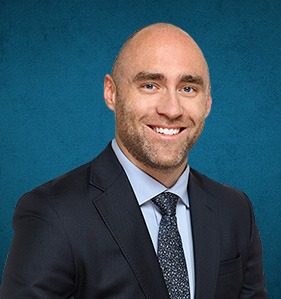CALL (800) 863-5312 TO SPEAK WITH A HOUSTON PERSONAL INJURY LAWYER FOR FREE
Whether we go to a friend’s house or the supermarket, we do not expect to end our visit with a potential lawsuit. However, sometimes the property we visit was not as safe as the law demands. If a person in charge of a premise did not act with reasonable care to provide a safe premise, he or she may be liable.
If you or your loved one has suffered an injury due to an unsafe or defective condition on someone’s property, you may be entitled to compensation. Call Zinda Law Group at (800) 863-5312 for a free consultation with one of our Houston premises liability lawyers.
What is Premises Liability?
Premises liability is the concept that a property owner is liable for harm that occurs to others on his or her property. In general, the owner of the property is liable only if he or she was negligent in taking care of the property. In a typical negligence case involving premises liability, a plaintiff must prove the following:
- The property owner owed a duty to the plaintiff to make their property safe and/or give warning of dangerous conditions on the property,
- The property owner did not make their property safe and/or give warning of dangerous conditions on the property,
- The plaintiff was injured, and
- The dangerous condition caused the plaintiff’s injury.
Essentials of Texas’s Premises Liability Law
The duty the property owner owes to visitors depends on the injured victim’s visitation status. To put it simply, a victim’s visitation status determines how much care that a property owner must place into taking care of his or her property. In Texas, there are three main types of categories of visitors: invitees, licensees, and trespassers.
Invitee
An invitee is a person who is on a piece of property with either an express or implied invitation of the owner of the property. Generally, an invitee is a person who is on the property for a purpose that financially benefits the owner of the property. An easy example of an invitee is the retail shopper. When you are shopping at a store, you are considered an invitee. This is because you are there to benefit the property owner by buying goods at the store. To invitees, property owners must warn and rectify any potential hazards on their property. Consequently, the store owes you a duty to maintain a safe premises to shop. If you by any chance slip and fall because the grocery store management was negligent in maintaining clean floors, you may have a potential lawsuit.
Licensee
A licensee is a person who is on a piece of property with the permission of the property owner but is not there to benefit the owner in an economic sense. A licensee is simply a stripped-down version of an invitee. You can think of a licensee as a social guest, such as a friend. To a licensee, a property owner must warn of dangers on the property but does not need to necessarily rectify them. Because many people confuse licensees and invitees, below is an example to distinguish them.
Let’s say you go to a bar and you slip on a puddle on the floor because bar management was negligent in mopping up its floors. You would have a viable claim against the bar because you were an invitee. This is true even if a bar employee told you that the floor is wet. Without taking any actions to remove the puddle or setting up barriers, a warning is simply not enough to protect a property owner from liability.
On the other hand, imagine that you go to a friend’s house and your friend tells you that there’s a puddle on the floor. If you end up walking over the puddle and slipping and falling, you would not likely have a viable claim against your friend because you were a licensee. Remember that licensees may be only given a warning of a potential hazard without the need to rectify the hazard. Of course, this does not mean that a property owner may booby trap his or her entire house and not be liable by simply warning a licensee that there are booby traps. A property owner must still keep his or her property reasonably safe for a licensee–just to a lesser degree than if the visitor was an invitee.
Trespasser
The legal definition of a trespasser is essentially the same as our everyday usage of the word. A trespasser is a person who is on a property without the permission of the property owner. To a trespasser, a property owner does not owe him or her a duty to make the property safe. However, a property owner may not willfully or intentionally injure the trespasser.
Common Premises Liability Injuries
- Bruises and cuts
- Stretched tendons, pulled muscles, torn ligaments
- Sprained or broken ankles/wrists
- Broken arm/legs
- Fractured collarbones
- Damaged knees
- Fractured tailbones
- Hip fractures
- Spinal cord injury
Common Causes of Premises Liability Cases
- Slip and falls
- Slippery floors or sidewalks due to water or ice
- Inadequate maintenance of elevator, escalator, etc.
- Construction defects
What Are My Rights After a Slip and Fall Accident?
Each of us has probably tripped and fallen at least once in our lives. Though most of us can get back up from such a fall, slip and falls that lead to lawsuits are surprisingly common. They are one of the most common accidents that serve as the basis of a premises liability claim. But just because you have a slip and fall accident on another person’s property, you are not guaranteed compensation. The type of property where the slip and fall took place heavily determines whether you have any right to compensation. For instance, your right to compensation may be lower if the slip and fall took place in a public space or at the workplace.
For instance, if you walk on a public sidewalk with numerous potholes and trip on one of the potholes, you may not be successful in filing a lawsuit against the government. The reason is that governments are often immune to civilian lawsuits.
In the context of a workplace, workers’ compensation generally prevents an employee from suing the employer for a slip and fall accident. However, if your employer intentionally provided an environment that made you slip and fall, you may be able to sue your employer even if you have workers’ compensation. Furthermore, be aware that Texas does not require employers to have workers’ compensation. You may thus have a viable claim against your employer if you slip and fall at the workplace.
What to Do After Being Injured on Someone Else’s Property
1. Seek Medical Treatment
Getting to a doctor and hospital is not only important for your health, but also for your premises liability claim. A doctor’s report serves as evidence to determine how much your claim is worth.
2. Take Photographs and Collect Witness Information
If you are able, take photographs of the unsafe conditions on the property that caused your injury. Without such pictures, you may be at a disadvantage in your claim if the property owner fixes the unsafe conditions before you even file your claim. Also, try and file an accident report with the property owner.
If there were any witnesses to the accident, ask if they are willing to give their names and phone numbers. If a witness also took a video or photographs, ask if they would be willing to send those documents as well.
3. Get an Experienced Lawyer
Often, when you are injured on a property, an insurance agent of the property owner will contact you, asking you to sign or give statements. Do not respond to any of these requests without speaking to an experienced lawyer. An experienced lawyer may anticipate the insurance agents’ tactics and help you make an informed decision.
Learn More: Why Hiring a Lawyer Will Help Your Case
Statute of Limitations
A statute of limitations sets the time limit on when you can file a lawsuit after an accident. In Texas, if you suffered a slip and fall or another injury due to the negligence of a property owner, you have two years to file a personal injury lawsuit against the responsible party.
CONTACT A HOUSTON PERSONAL INJURY LAWYER
The experienced Houston attorneys at Zinda Law Group may be able to help you with your premises liability claim. After a slip and fall accident, you shouldn’t have to worry about affording legal representation, which is why we work on a contingency fee basis. You don’t owe us anything unless we win your case. That’s our No Win, No Fee Guarantee.
Call us today at (800) 863-5312 for a free consultation with one of our Houston premises liability lawyers.
Meetings with attorneys by appointment only.

John (Jack) Zinda
Founder / CEO
Over 100 years of combined experience representing injured victims across the country.
Available 24 / 7|Free Consultation
Neil Solomon
Partner
Real results matter. We do not get paid unless we win your case.
Available 24 / 7|Free Consultation

























